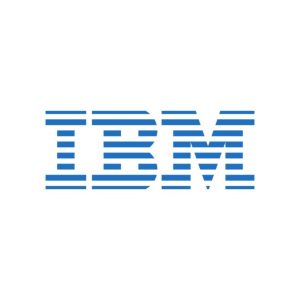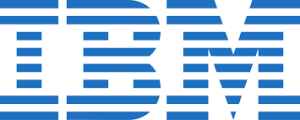- All
- Favorite
- Popular
- Most rated

Quality Gates for Applications in DevSecOps
In this course, you should learn how to capture security incidents with DevOps Insights.

File Storage Capabilities and Options on IBM Cloud
This course introduces the IBM Cloud classic storage options and capabilities.

Identity Management
This course covers the access controls that are available when using IBM Cloud® Identity and Access Management (IAM) and the reasons an IBM Cloud Developer would use App ID.

IBM Cloud for SAP Specialty Accelerator
The IBM Cloud for SAP Specialty Accelerator badge is for jam participants who have professional-level knowledge of how and when to run SAP on IBM Cloud.

Designing Resilient Solutions
In this course, you will explore the design of resilient solutions and applications, IBM Cloudant®, multi-region architecture, IBM Cloud® Internet Service, and designing resiliency options.

SAP Architecture Overview
This course covers the architectural environments used to effectively run SAP workloads on IBM Cloud. It includes information on what it means to be SAP certified.

IBM Cloud Container Services
This course introduces two container orchestration software options: IBM Cloud® Kubernetes Service (IKS) and Red Hat® OpenShift® on IBM Cloud.

IBM Cloud Container Registry with Vulnerability Advisor
This course covers container usage on IBM Cloud®, including IBM Cloud Kubernetes Service and Red Hat OpenShift, as well as exploring features such as pods, namespaces, service accounts, and ingress.

IBM Cloud Security and Monitoring Services
This course introduces the learner to IBM Cloud security and monitoring services including monitoring, logging, the Activity Tracker, and IBMs Security Compliance Center.

IBM Cloud Resources
This course explains the IBM Cloud Catalog, IBM Cloud documentation, and IBM Cloud Tutorials.

IBM Cloud for VMware Solutions – vSphere
This course covers the VMware vSphere offering. vSphere helps extend the on-premises VMware environment into IBM Cloud.

Logging, Monitoring, and Event Management Tools
This course covers the importance of IBM Log Analysis and IBM Cloud® Monitoring from a DevSecOps perspective.

Designing Solutions for Portability
This course introduces you to the ways in which an application can be designed to be portable. You will explore containerization and the container registry.

The Emergent Cloud Deployment Models
This course reviews the emergent cloud deployment models including distributed cloud and multicloud.

Using Red Hat OpenShift on IBM Cloud
This course covers the use of Red Hat® OpenShift® on IBM Cloud® to deploy, manage, and expose applications. It presents use cases as well as application integrations.

IBM Cloud Security Engineer Flash Card and Study Guide Preparation
The IBM Cloud Security Engineer study preparation content consists of a study guide and flash cards that correlate with the online training courses in the IBM Cloud curriculum.

Containers Overview
This course introduces container orchestration systems. It explores containers and how they differ from virtual machines, as well as different methods for handling containers.

The Cloud and Why People Use It
This course defines the cloud, provides an overview of why people use it and briefs the learner on primary characteristics and benefits of the cloud.

Monitor Resource Utilization
This course explores the importance of resource utilization and the benefits of using different monitoring tools.

Managing Incidents on IBM Cloud
This course describes how to manage incidents on IBM Cloud.

IBM FS Cloud Flash Cards and Study Guide
The IBM Cloud for Financial Services study preparation content consists of a study guide and flash cards that correlate with the online training courses in the IBM Cloud curriculum.

Fundamentals of IBM Cloud Associate SRE
The Associate SRE Fundamentals badge is for learners who have learned the fundamentals and terminology used within the SRE industry.

Continuous Integration and Continuous Deployment/Delivery Models – Distributed
In this course, you explore a variety of toolchain deployment models, including basic, canary, blue/green, and rolling, and when to use each one.

Power Virtual Server Architecture and Technology
This course explores the architecture of Power Virtual Server, covering topics such as computer instruction sets, processors, supported operating systems, and common workloads.
The Founding of IBM and Its Evolution Over the Years
IBM’s roots trace back to the early 20th century, when it was initially founded as the Computing-Tabulating-Recording Company (CTR) in 1911 through the merger of three companies that manufactured various devices, including punch card machines and time-keeping equipment. In 1924, the company adopted the name International Business Machines, which aligned with its ambitions to lead the global market in technological solutions. During the 1930s and 1940s, IBM expanded its influence by introducing automated tabulation machines, which became essential tools for businesses and governments. IBM’s success continued with its innovations in mainframe computers in the 1950s and 1960s, which solidified the company’s position as a leader in computing technology. The IBM 701, released in 1952, was the company’s first large-scale electronic computer, and it marked the beginning of IBM’s dominance in the mainframe market.IBM’s Notable Milestones
Throughout its history, IBM has consistently been a leader in groundbreaking technology. Some of the company’s most notable milestones include:- 1964: The launch of the IBM System/360, a family of mainframe computers that could be used for a wide variety of tasks. This innovation was a turning point in the computing industry, allowing businesses to invest in technology that could grow and adapt with their needs.
- 1997: IBM’s Deep Blue, a chess-playing computer, made history by defeating world chess champion Garry Kasparov, showcasing the potential of artificial intelligence.
- 2011: IBM’s AI-powered system, Watson, won Jeopardy! against human champions, further cementing IBM’s leadership in AI research and development.
- 2016: IBM became one of the first companies to provide cloud services with its IBM Cloud platform, which today remains one of the most widely used enterprise cloud platforms worldwide.
- 2020: IBM advanced its quantum computing efforts by launching the IBM Quantum Experience, a cloud-based platform that allows researchers and developers to access quantum computers.
IBM’s Educational Offerings and Certifications
IBM’s dedication to education is evident in the wide range of courses it offers across multiple domains of technology. The company’s IBM Skills Academy is an industry-leading educational platform that provides learners with in-demand skills. IBM’s courses on EdCroma include specialized training in:- Data Science: Master the fundamentals and advanced techniques of data analytics, machine learning, and AI.
- Cloud Computing: Learn to develop and manage cloud infrastructure using IBM Cloud and other industry-leading tools.
- Blockchain: Gain expertise in blockchain development and its applications in finance, supply chain, and cybersecurity.
- Cybersecurity: Learn about the latest threats and how to defend against them, leveraging IBM’s extensive experience in securing enterprise-level systems.
- Quantum Computing: Explore the future of computing with IBM’s quantum education programs, which provide hands-on experience with quantum algorithms and development.
IBM’s Approach to Learning
IBM’s educational philosophy is centered on continuous learning and skill development. As technology evolves, so do the demands of the workplace. IBM ensures that learners stay ahead of the curve by offering courses that reflect the latest trends and technological advancements. Courses are designed to be interactive and engaging, with hands-on projects and case studies that help students apply what they’ve learned to real-world scenarios. Additionally, IBM emphasizes the importance of industry collaboration. Many of the company’s courses are developed in partnership with leading academic institutions and industry experts. This ensures that the curriculum is not only academically rigorous but also aligned with the needs of the business world.Why Choose IBM as Your Educational Partner?
IBM’s legacy of innovation, combined with its commitment to education, makes it a top choice for learners who want to excel in the tech industry. By enrolling in IBM’s courses on EdCroma, students gain access to:- World-class instructors with decades of industry experience.
- Cutting-edge resources and tools for hands-on learning.
- Globally recognized certifications that enhance career prospects.
- A community of industry professionals and thought leaders who are shaping the future of technology.

